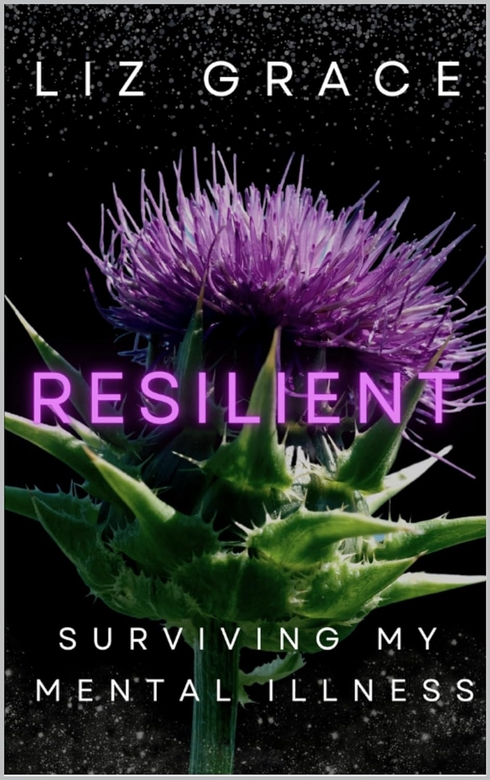
Offering living proof that there is light in the darkness, even if the tunnel never ends, author Liz Grace has penned an inspiring and unforgettable autobiography in Resilient: Surviving My Mental Illness.
In her teenage years, Grace struggled with the sudden loss of her mother, a fractured home where communication was scarce, and the isolation led to suicidal ideation and desperation. The book moves through various events and challenges of her young adulthood, creating a comprehensive picture of her family dynamics, social outlets, and pain points, buttressed by actual transcriptions of her journal entries from all those years ago.
The blend of memory-fueled narration and document-supported storytelling gives a rare, real-time peek into the hardest moments of self-harm, loneliness, and thoughts of suicide. First-person written accounts of mental health crises are somewhat uncommon, as such periods of life can elicit shame, apathy, or paralysis, but the author’s interspersed journal record (throughout the first third of the book) provides powerful insight into the cognitive labyrinth of depression, reminding vulnerable young readers that they aren’t alone.
As her story progresses through different medical treatments, seasons of life, in-patient stays, jobs found and lost, psychiatrists, breakthroughs, and breakdowns, the title of this book begins to come into focus. The compounded obstacles of Grace’s rapid hearing loss and devolving mental health at times seem like an impossible combination, with severe anxiety and depression making it painful for Liz to even go out into the world, let alone interact with peers at school, colleagues at work, or her emotionally inaccessible father.
While she benefitted from genuine support, compassion, and concern from others in many cases, there were also nurses, doctors, therapists, social workers, family members, and friends who did more harm than good, making unfair and dangerous assumptions about her condition and mental state. This book is as much a critique of the system as a soul-baring memoir, as well as a testament to the importance of advocating for yourself and asking for help from those you trust the most.
As the author notes in her opening, this isn’t always an easy book to read, but it is an important portrait of intense experience that will resonate with readers who have either struggled with mental illness, or have had their life touched by it. The lens that Grace offers is especially unique because she is currently working as an occupational therapist, and the first-person narration of her mental activities, self-soothing techniques, and inner monologue, even in the midst of her stressful daily life in later chapters, is revelatory. People who live with persistent mental illness often feel alienated, unheard, or incapable of functioning in a “normal life,” but this valuable account is a reminder that while many of the hardest battles are invisible, they are far from impossible to win.
On a technical level, the writing is generally well-edited, though there are some dialogic exchanges that feel choppy or unrealistic; in comparison to the unadulterated journal entries early on, some of the reimagined conversations come off as less authentic. With that slim critique aside, however, this is a remarkably honest, fearless, and selfless piece of writing, one that could help people facing a myriad of challenges, which could even be life-saving.
Book Links
STAR RATING
Design
Content
Editing
Get an Editorial Review | Get Amazon Sales & Reviews | Get Edited | Publish Your Book | Enter the SPR Book Awards | Other Marketing Services























Leave A Comment